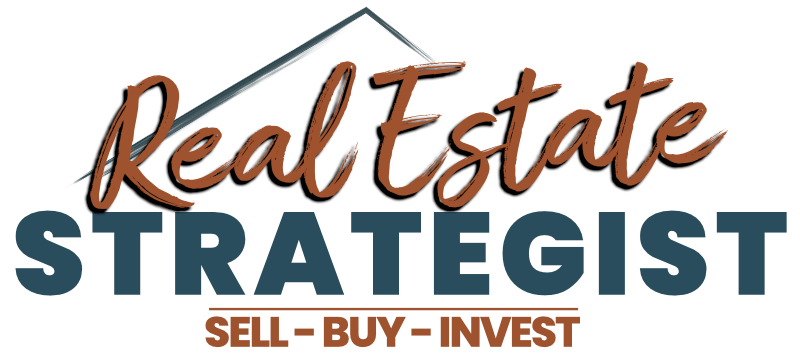How much cash do You need to buy a house?
An in depth guide of all expenses a homebuyer will encounter to purchase a home. Including deposits, closing costs, down payments, loan options & grants
Most people think they will have to spend much more cash out of pocket to buy a home than they actually would. A lot of people continue to rent or never plan to buy for this reason, thinking they’ll need 20% down plus thousands in closing costs, commissions and other costs. These things are false, and I’ll break down the typical costs here. Please keep in mind that all of this is negotiable and we can talk through your specific situation to come up with a plan that works for you. This is just a baseline but if you can’t meet something, we can usually find a way together.
EARNET MONEY & DUE DILIGENCE DEPOSIT PAID AT ACCEPTANCE OF OFFER – ABOUT 1% OF PURCHASE PRICE
The 1st cost to go over is the earnest money deposit and the due diligence deposit. When we submit your offer to a seller to purchase their property, there are typically 2 deposits made upon acceptance of the offer to purchase. They both need to be submitted within 5 days to keep the contract valid. The due diligence fee is a deposit made directly to the seller in exchange for them accepting the offer and taking their home off the market for you to inspect and potentially buy. It shows them how serious you are because you cannot get this money back if you walk away. If you walk away at any point, the seller keeps this money, and if you close it will be applied to the purchase price. The earnest money deposit is your good faith deposit that the closing attorney will hold. If you walk away during your due diligence or inspection period, you get this money back. If you walk away after the ddp, then you forfeit this money to the seller, and if you close on the property then it gets applied to the purchase price. A typical EMD and DDF for a 200k purchase may be around $1000 DDF and $2000 EMD. So you will need to have that money ready to go when you are ready to make an offer. Now your lender will need to lend you the remaining 197k minus your downpayment in order to close. If you change your mind for any reason during the due diligence period, you can walk away and forfeit only your ddf and be refunded your emd. You can also elect to negotiate with the seller instead of walking away if you’d like. Keep in mind that these are just baseline estimates for the deposits and they are negotiable and scenario based. I have got properties under contract with only $50 emd and no ddf. That is not common on a typical residential sale and you should plan to have at least 1% of purchase price set aside for these deposits
CLOSING COSTS PAID AT CLOSING – ABOUT 3%-5% OF PURCHASE PRICE
Next up, closing costs, there is no avoiding that right? Wrong. While it’s common to spend 2-4% of the purchase price on closing costs, and that is the amount I’d recommend having set aside, there are ways to avoid paying them. 1st we can try to negotiate that the seller pay them! That’s right, when you make an offer on a property to the owner, you can simply request that they pay your closing costs, and they accept more often than you would think, especially if you give them close to asking price or they are motivated. Most lenders will allow the seller to pay up to 3% of purchase price in closing costs, some up to 6%! So it is possible to have some or all of your closing costs. There are also grants from certain banks that will cover your closing costs as well, and I’ll cover that below in the grant section. Your closing costs will be due at the closing table. Typically the lender will require you to pay for the appraisal prior to closing but usually everything else can be paid at closing. Here is a ballpark break down for typical buyer closing costs for a 200k home purchase.
- Lender fees – (Required unless paying cash) $4000
- Appraisal – (Required unless paying cash) $500-$600
- Attorney – (Required) $1500
- Prepaid taxes and insurance (Required) – $2000
- Inspections (depend on your selection of inspections)- $0-$1000+
- Home warranty (depend on your selection) – $0-$600
LOANS OPTIONS & DOWNPAYMENT – PAID AT CLOSING
The days of putting down 20% to buy a house are gone. It still happens by choice when people want to pay for the equity, or purchase an investment property, but other than that we are seeing much lower down payments. 10%, 5%, and even 3% are common numbers now. It’s normal to use a conventional or fha loan that allows you to put 3-5% down instead of 20%, and there are a couple 0% down programs! Va loans offer veterans a 0% down option and USDA loans offer 0% down options for homes in rural areas. This payment will need to be wired in to the attorney just before closing so that they can combine it with the lenders payment and pay the seller so that you can close on the house! Keeping with our 200k purchase, you already made 3 k in earnest money and due diligence deposits leaving you with 197k owed. Say you’re putting 5% or $10,000 as a downpayment, your balance owed will be 187k which the lender will wire in to the attorney and you will make mortgage payments to the lender for the remainder of the loan. Your lender will go over all of those details with you so you know exactly hat to expect and all of the details on your payment.
GRANTS – APPLIED AT CLOSING
There are grants and programs that will cover your closing costs and downpayment in certain situations. There are 1st time home buyer grants, grants for people making under a certain income, and grants for homes in specific locations, Contact me for details on these types of programs and let’s get started today!

